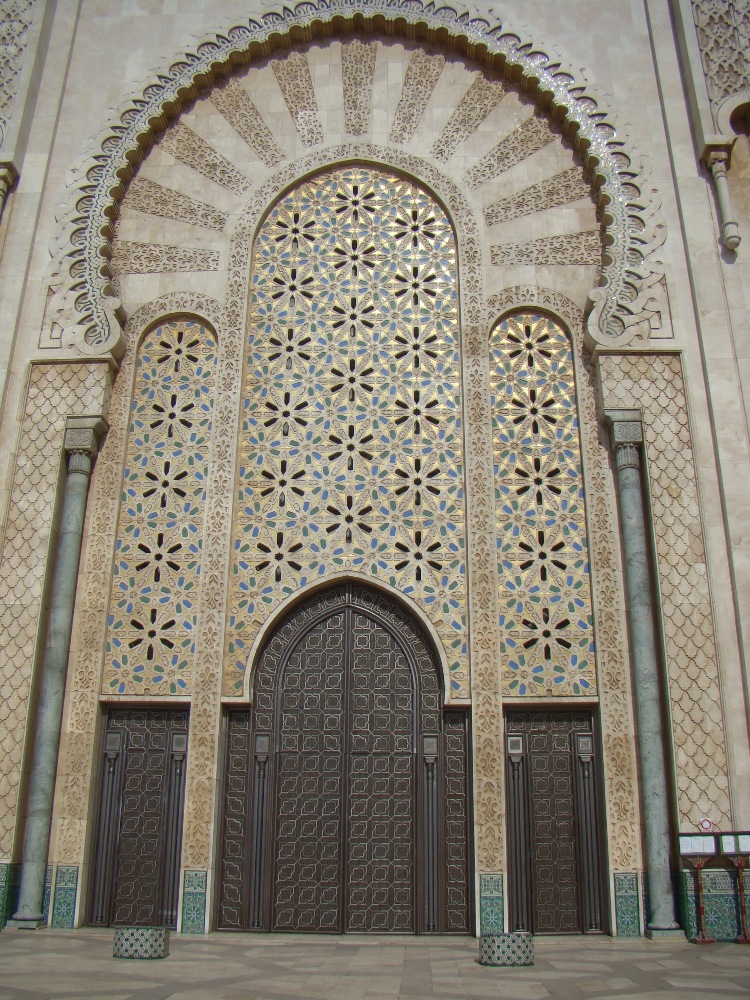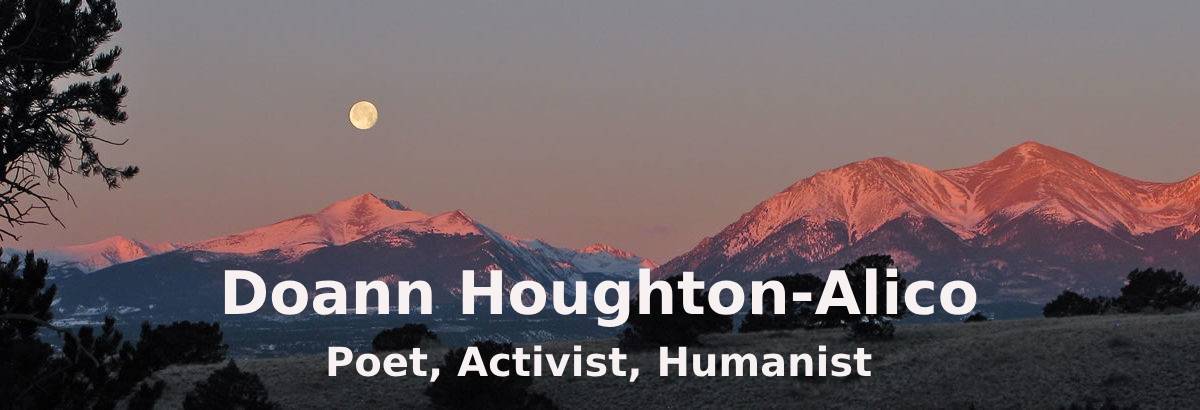Do you know the differences between Sunni and Shi’a Muslims? I am not Islamic so I won’t pretend to know the subtleties, but I do know from Muslims, Islamic scholars, and nondenominational religious scholars that the theological differences are minimal. As one Muslim said, “Like being Episcopal or Lutheran.”
The tendency to simplify other cultures into basic categories often leads to both immense and monstrous misunderstandings. We live in a complex world; we want to understand it. And sometimes these simplifications make it easier for us to cope. But we are making a grave error when we see conflict in the Middle East and elsewhere as an Islamic religious “civil” war.
 Entrance to the Hassan II Mosque in Casablanca, Morocco, which I was fortunate to visit.
Entrance to the Hassan II Mosque in Casablanca, Morocco, which I was fortunate to visit.
The perceived divide between these two sects of Islam—and perhaps we should add three with Saudi Arabia’s more extreme Wahhabism, analogous to fundamentalist Christians within Christianity—is a recent situation, not an ages-old religious rivalry.
It is being used, particularly by Saudi Arabia and Iran, to divide and conquer. Its shadows are political and economic, not religious. It’s easier to coerce people to fight for you based on their beliefs rather than for giving their leaders more territory, power, or money.
One would have hoped that we learned something from Iraq and Afghanistan as we barge in ignorant of what we are really doing.
In terms of Afghanistan, I recommend “No Good Men Among the Living” by Anand Gopal. The title is from a saying, “No good men among the living; no bad men among the dead.” Here’s a link to information about it:
https://www.goodreads.com/book/show/17454723-no-good-men-among-the-living#other_reviews
This is a link to an excellent, moderate, thoughtful article about the Sunni-Shi’a situation by Omid Saif, a professor a Duke University:
http://www.onbeing.org/blog/omid-safi-ten-ways-on-how-not-to-think-about-the-iransaudi-conflict/8315
Here is a quote from that: “Context, context, context. We cannot make sense of the strife of the modern world without dealing with nationalism, colonialism, and the oppressive apparatus of modern states. So why are we so hesitant to engage in a discussion of context? Because to discuss the history of the Middle East in the 20th and 21st centuries, we have to discuss colonialism, first of the British and the French, and then of U.S. support for autocratic and dictatorial regimes (Iran, Saudi Arabia, Iraq, Pakistan, Egypt, Israel, etc.) In short, we cannot tell the real story of the destabilization of Middle East without accounting for our own complicity.”
And that is something the United States and Europe refuse to do.
